QuestionI have an 8 year old female lab who has been a wonderful pet since she was about 9 weeks old. She is very smart and has been house trained since the first week we got her, but recently she has been having problems. She and our other lab are crate trained and stay in their crates at night and when we are not home. In the past couple of months my female lab has been having pooping accidents in the house. It has always happened right when she's let out of her crate or right after she eats. She is always racing for the door, but doesn't seem to be able to hold it long enough. This morning when I let the dogs out to go outside and to feed them she had peed in her cage. I know she had done it as I was coming downstairs because only her feet were wet. I was wondering if dogs can become incontinent, and if you knew of any causes.
Thank you!
Alison
AnswerHi Alison,
Yes, dogs can often become incontinent in their elder years.
Female dogs, both spayed and unspayed are prone to develop urinary tract infections which can make it hard to hold their urine, and cause increased frequency of urination. This is something that's easily treated.
Another cause for incontinence in female dogs is related to their estrogen hormone levels. Again, spayed and unspayed dogs can develop this. In the female dog, estrogen hormone is responsible for providing tone to the bladder sphincter muscle. When spayed, this hormone is no longer being produced in the amount it was prior to the removal of the ovaries (where the estrogen hormone is produced). In older unspayed dogs, a decreased level of estrogen will have the same effect.
Small amounts of estrogen hormone is produced by the adrenal glands. Most of the time, this is enough estrogen to provide bladder sphincter tone in spayed dogs. However, in some cases it is not. These dogs then require medications to support bladder sphincter tone. There is medication available to assist in urinary incontinent dogs, includes hormonal replacement, or the use of direct bladder sphincter stimulants.
So, your first step needs to be a trip to the vet to to find out the cause of her incontinence.
Until your dog can be examined, lay down absorbent puppy house training pads in your dog's crate, and sleeping areas. Try to get her outside as quickly as possible after meals, and first thing in the morning.
Best of luck,
Patti

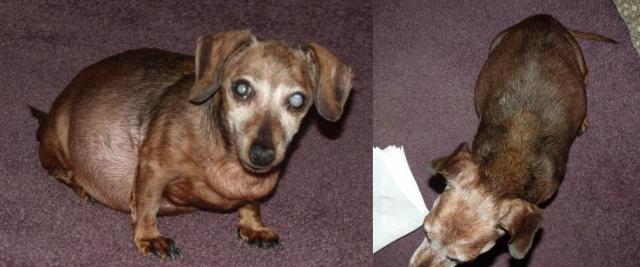 Older dog with distended stomach.
Question
Belle
Hi, my 14 year old miniature dachshund,
Older dog with distended stomach.
Question
Belle
Hi, my 14 year old miniature dachshund,
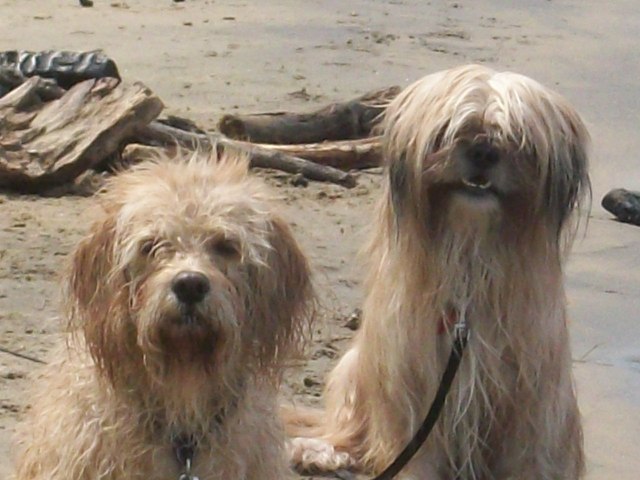 re: dog breed
Question
Dog pic question about
Hi Patti,
I took in a
re: dog breed
Question
Dog pic question about
Hi Patti,
I took in a
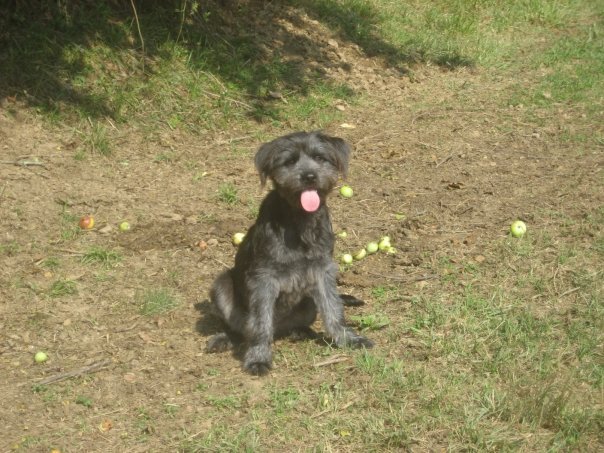 Help with my best friend :)
Question
cash
Hello!
&
Help with my best friend :)
Question
cash
Hello!
&
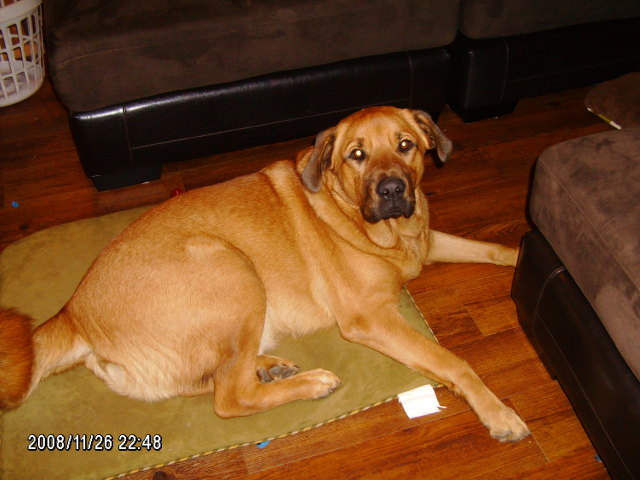 mouthing; pawing, wont drop it
Question
My puppy Trigger
I have a 10 month old LARGE (
mouthing; pawing, wont drop it
Question
My puppy Trigger
I have a 10 month old LARGE (
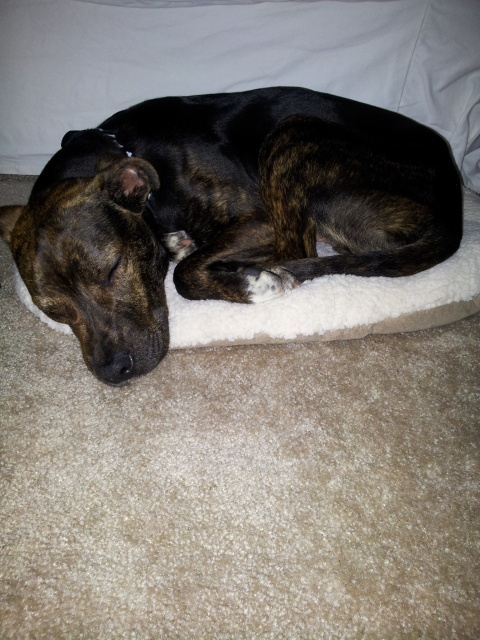 8 month old rescue has crate-phobia
Question
His name is Pepper
Please help. We adop
8 month old rescue has crate-phobia
Question
His name is Pepper
Please help. We adop